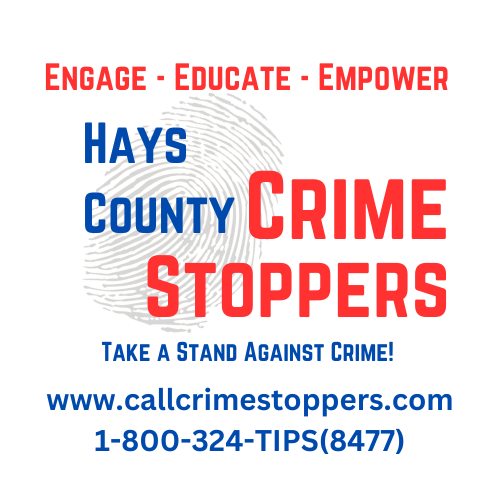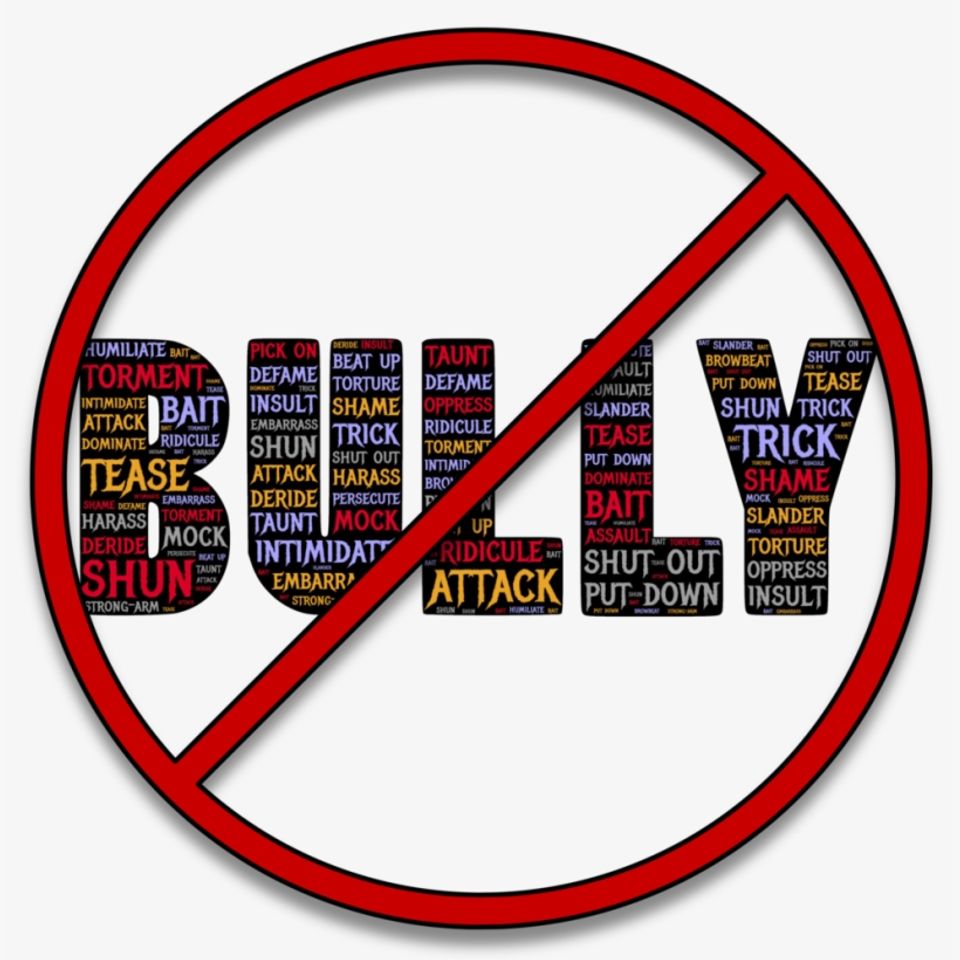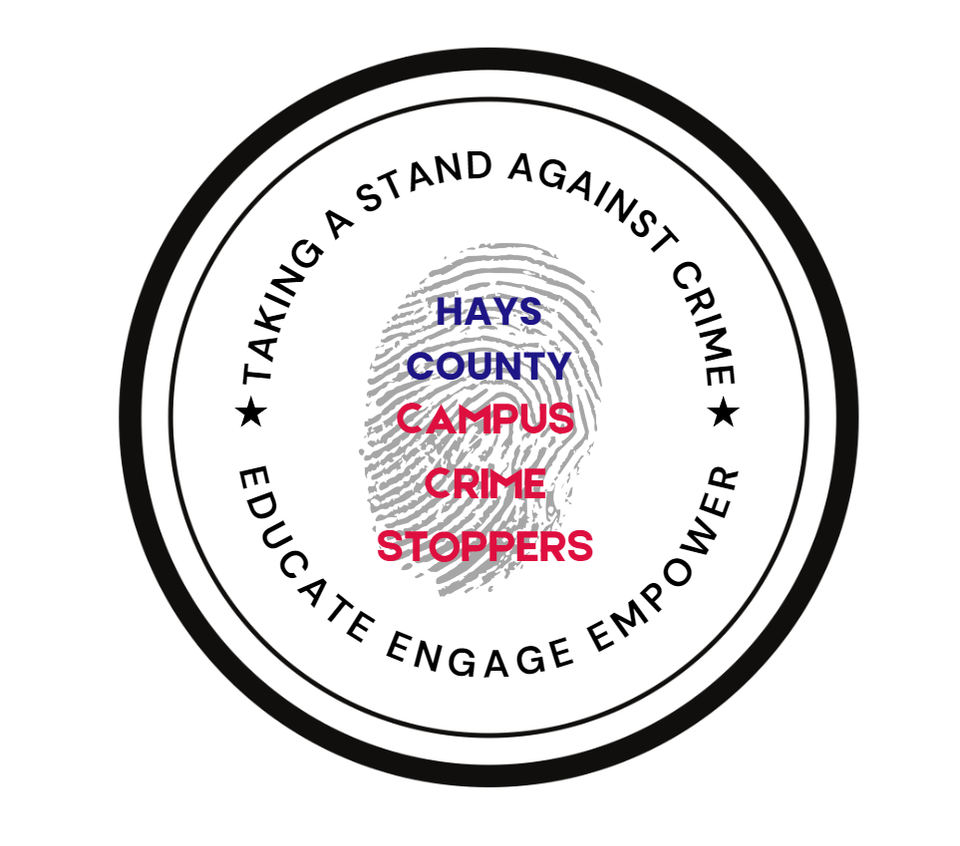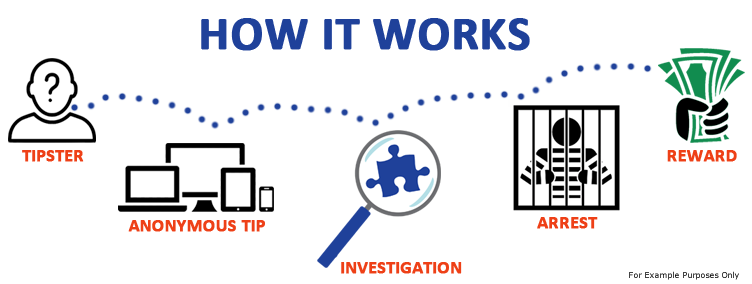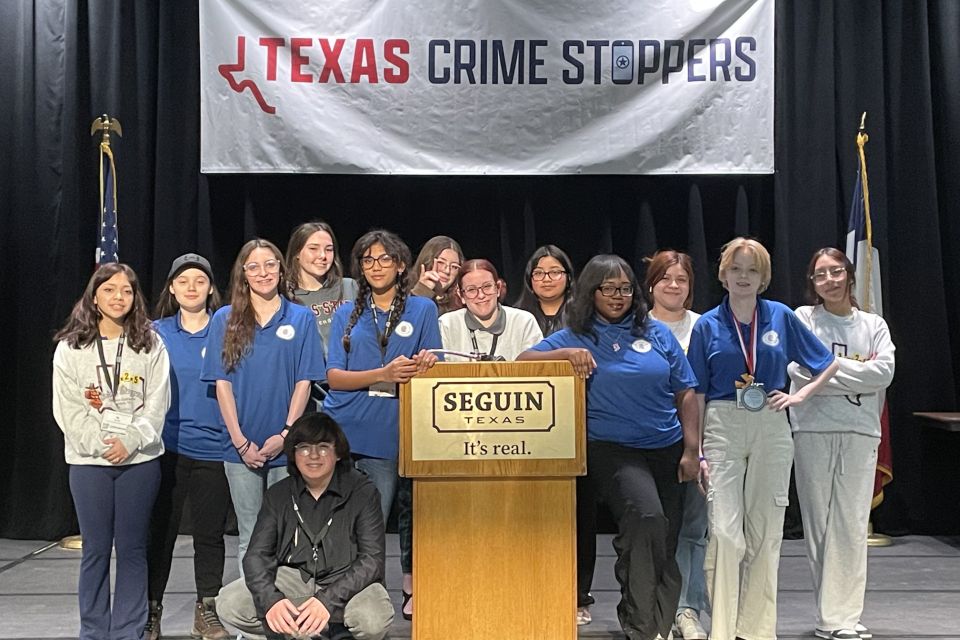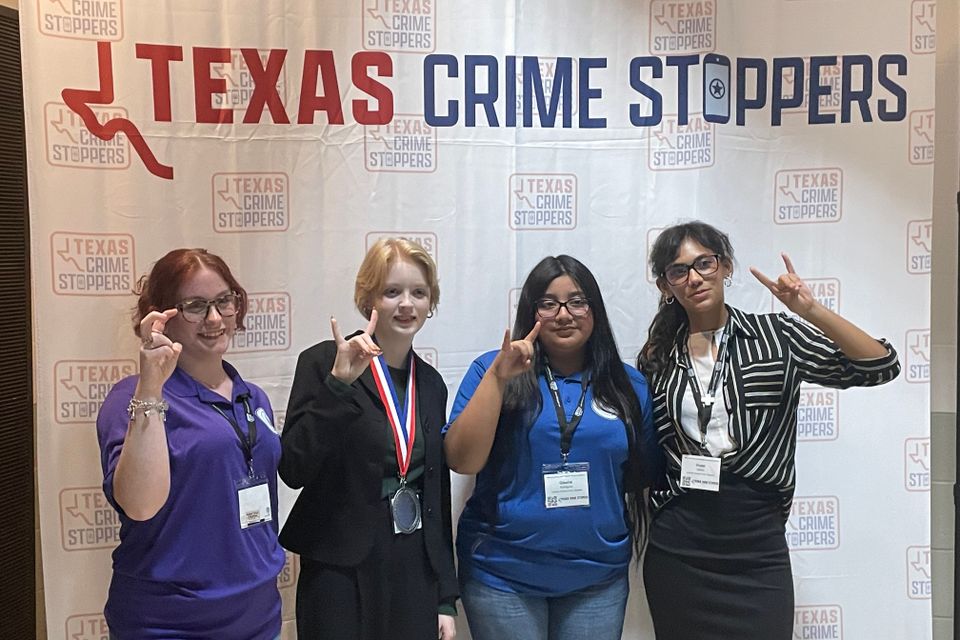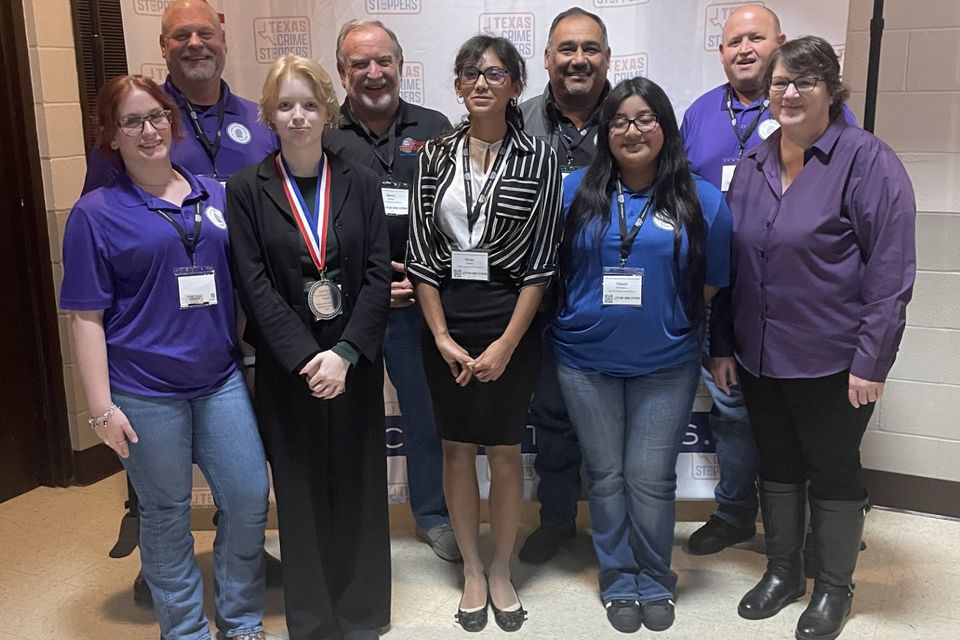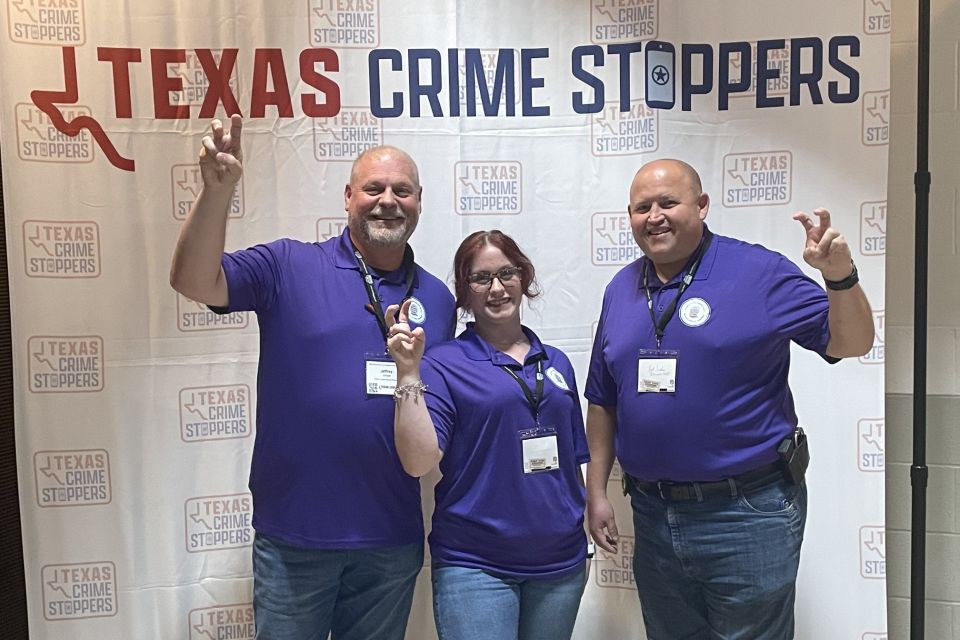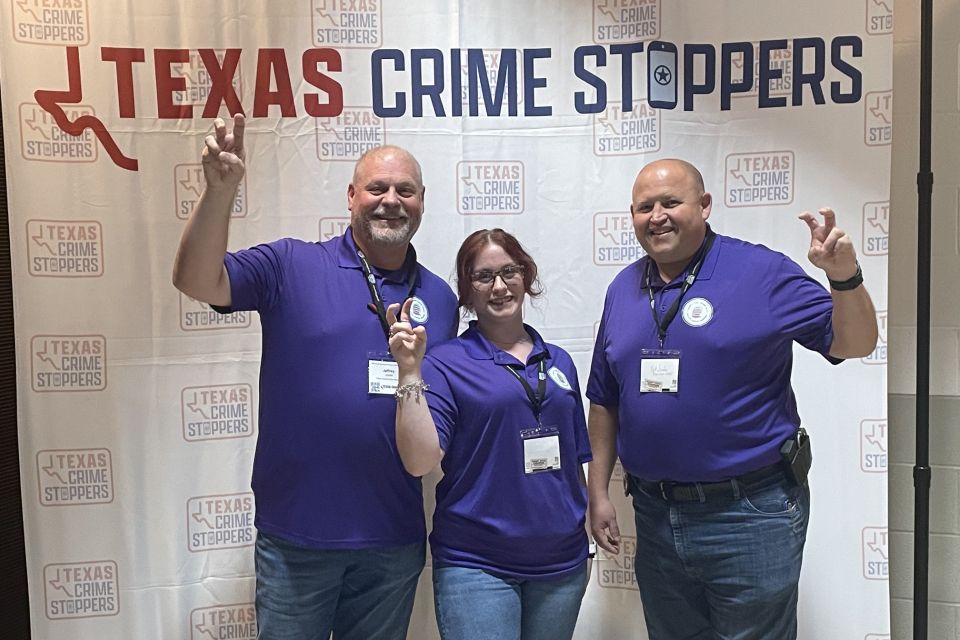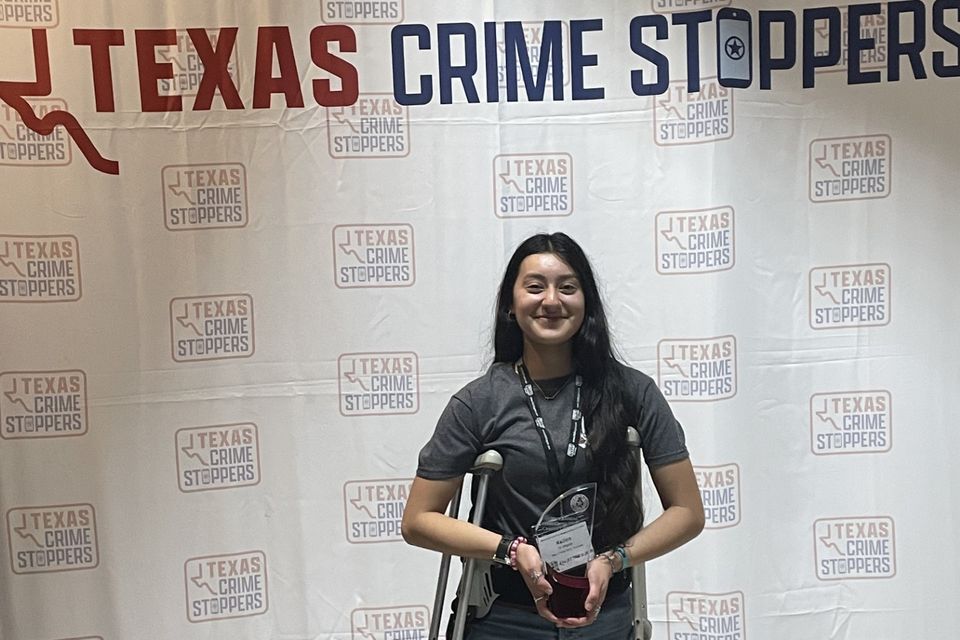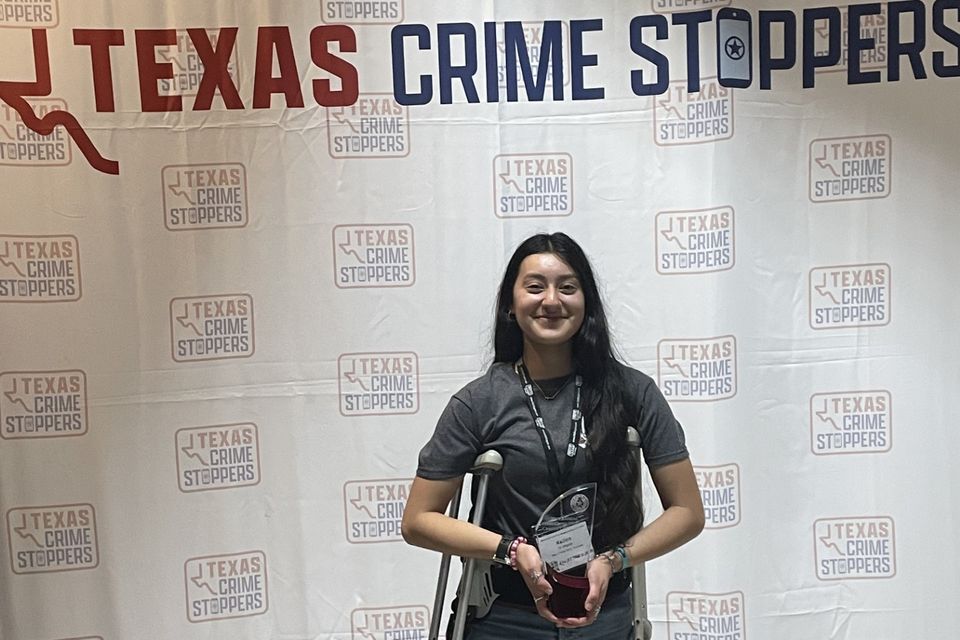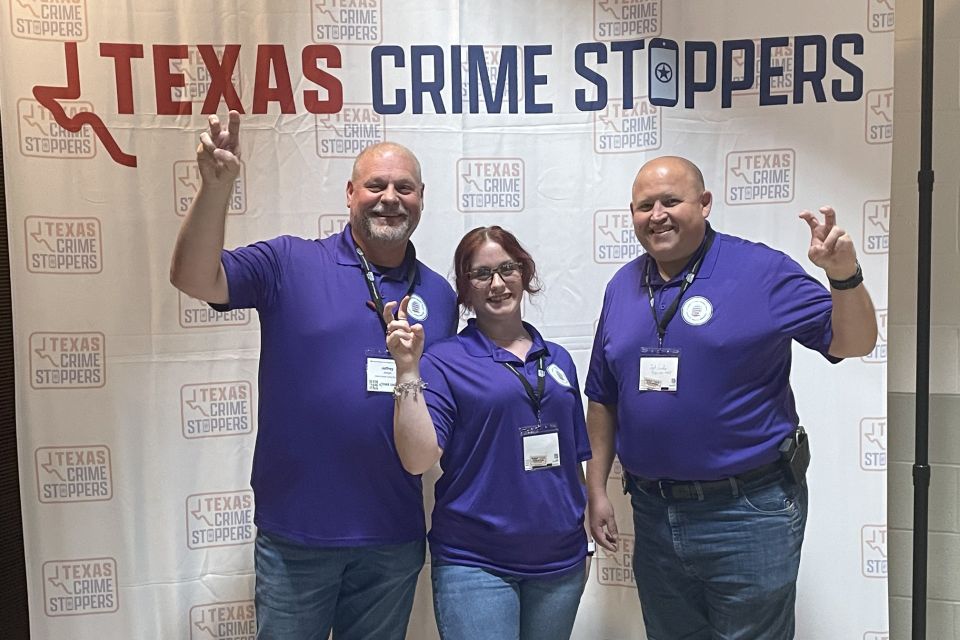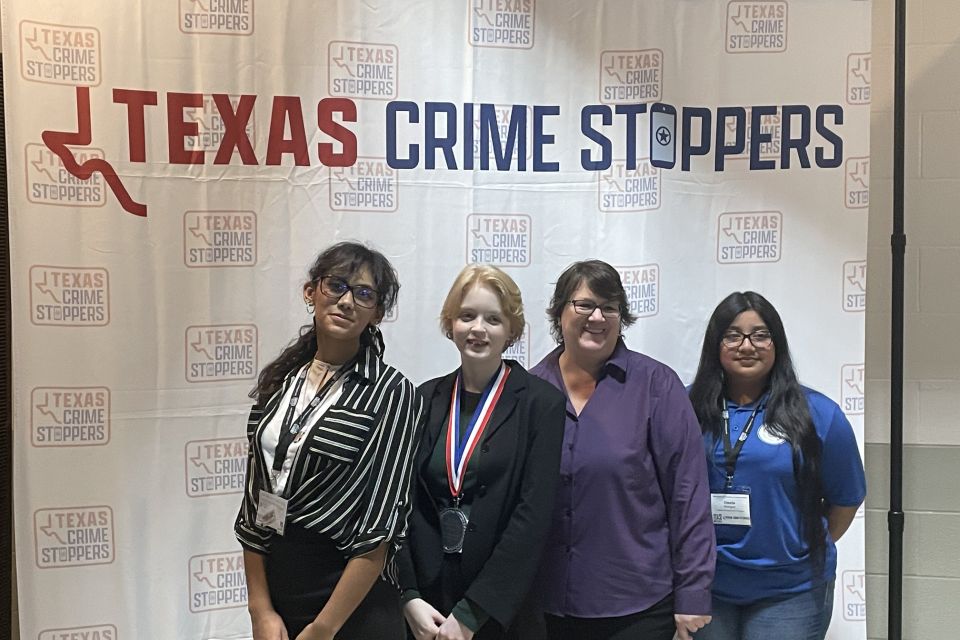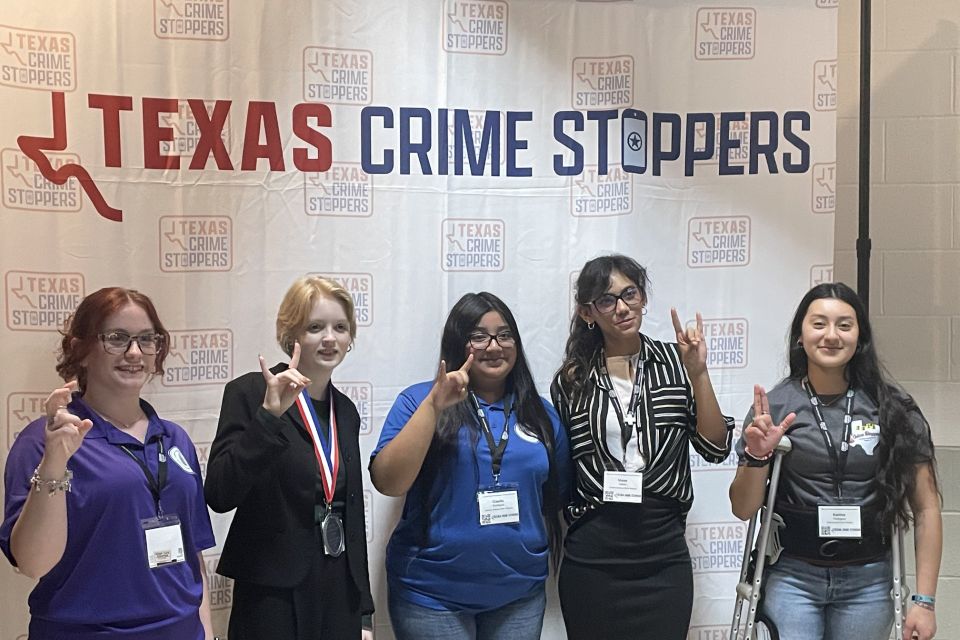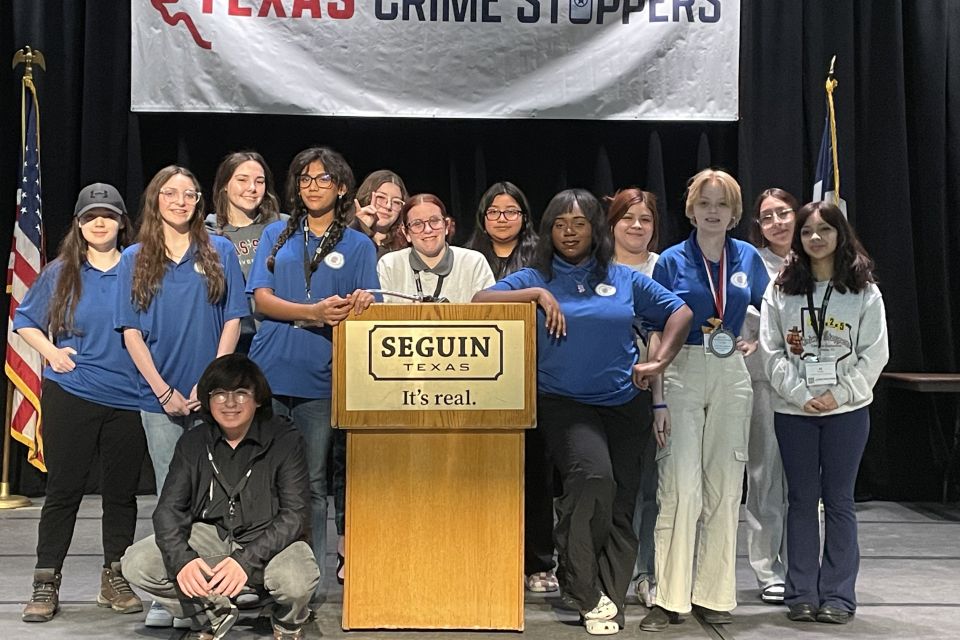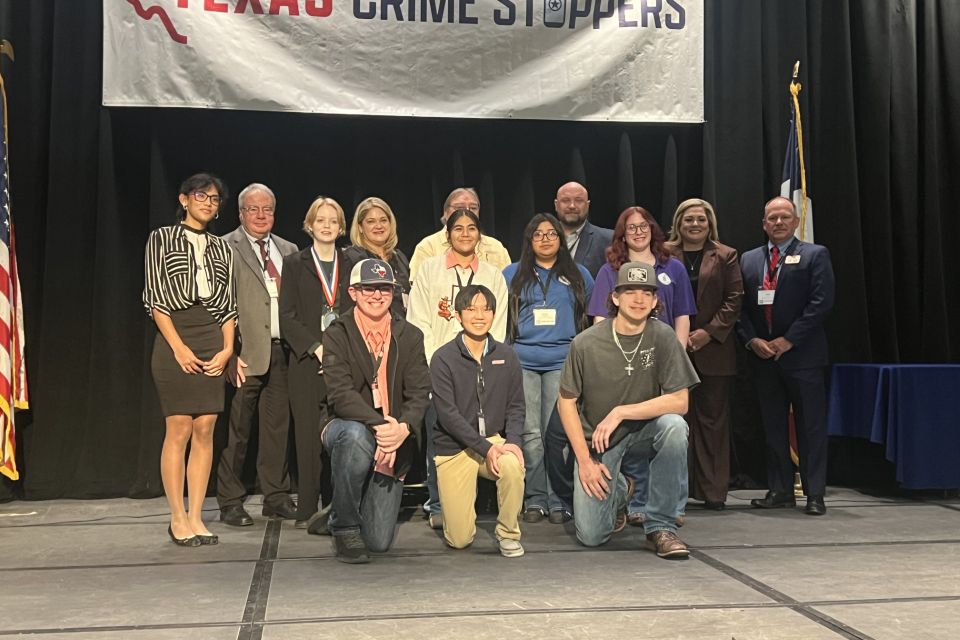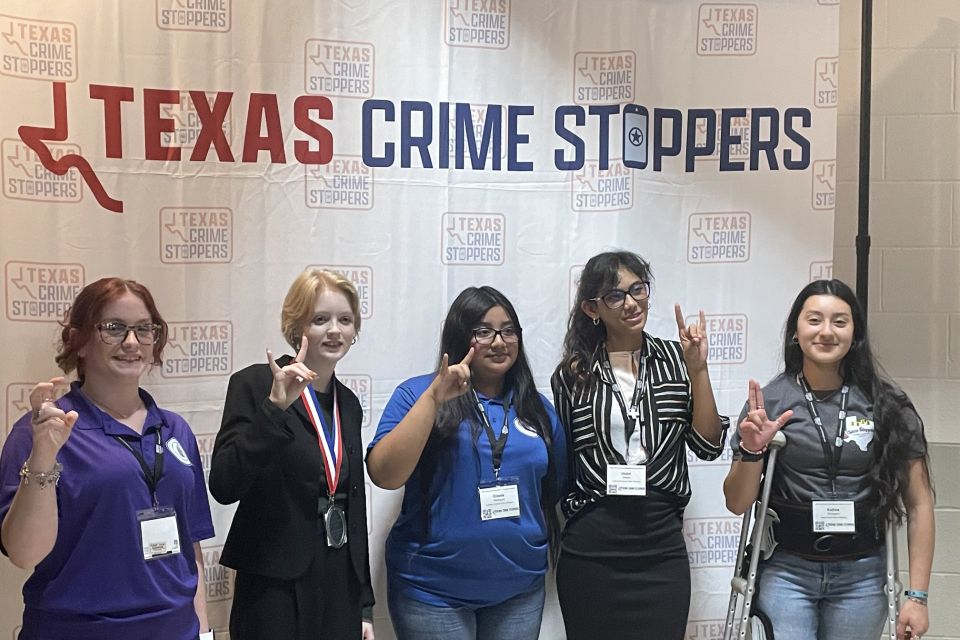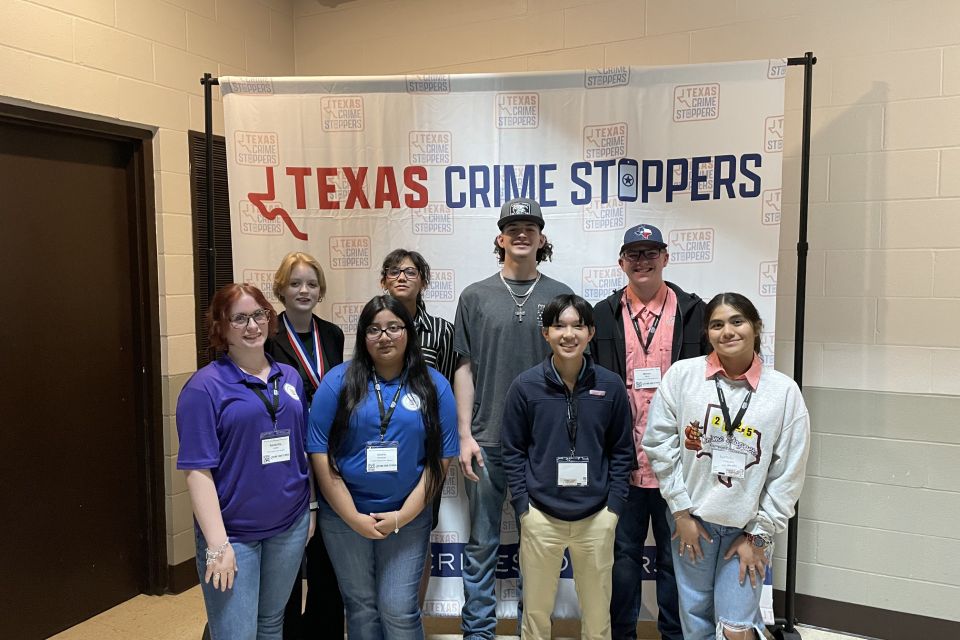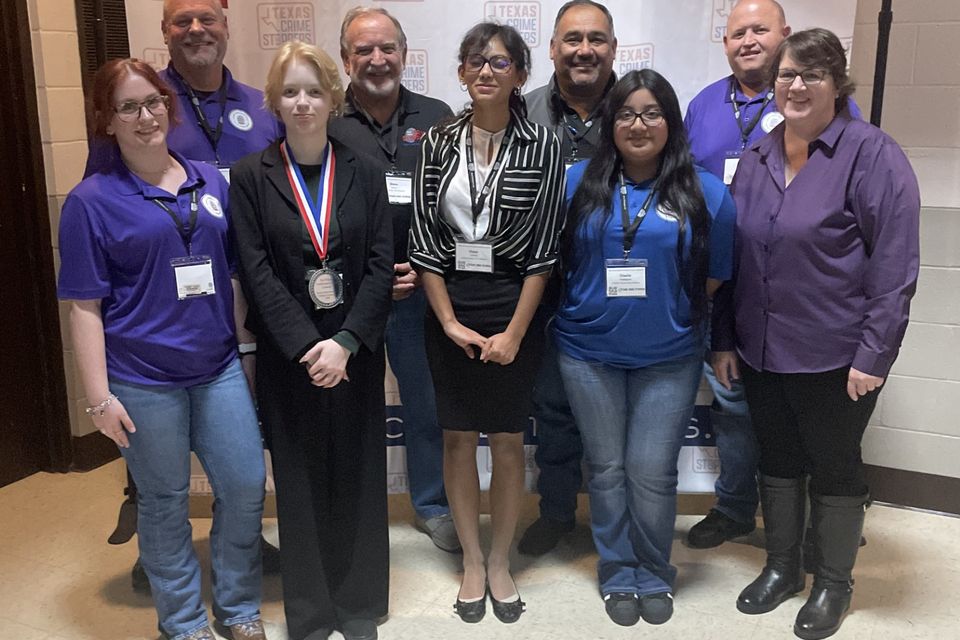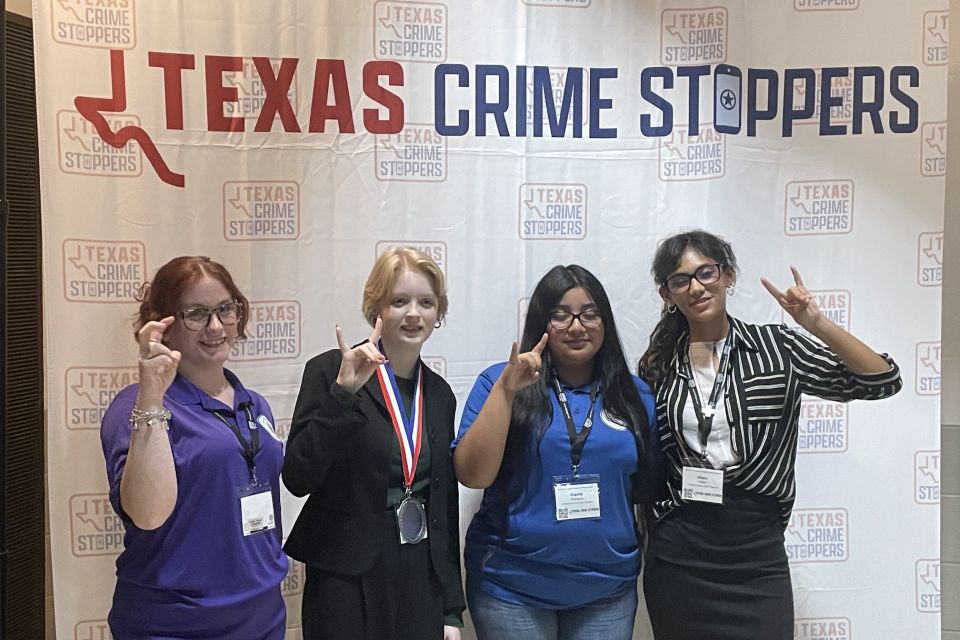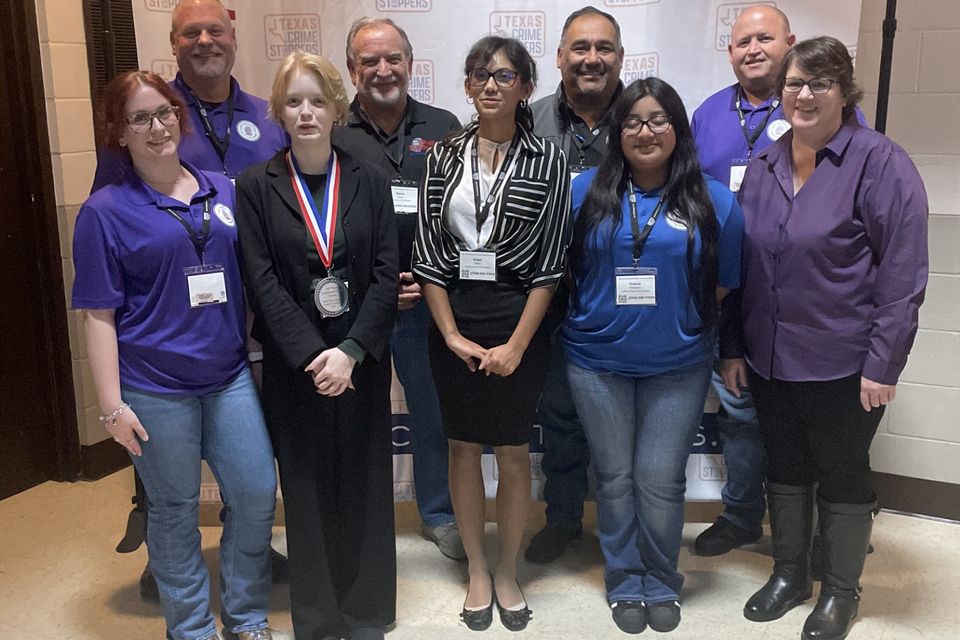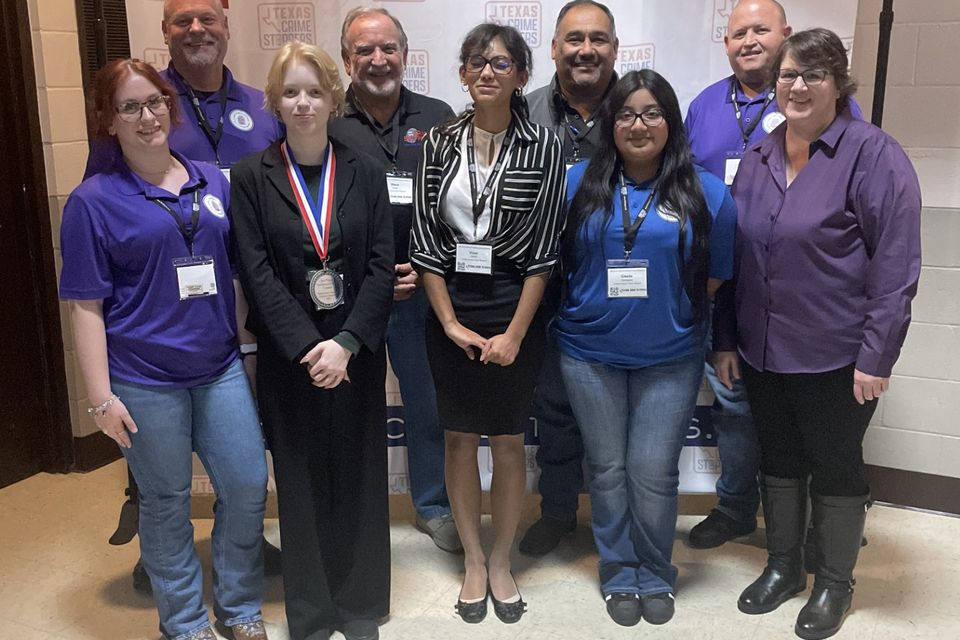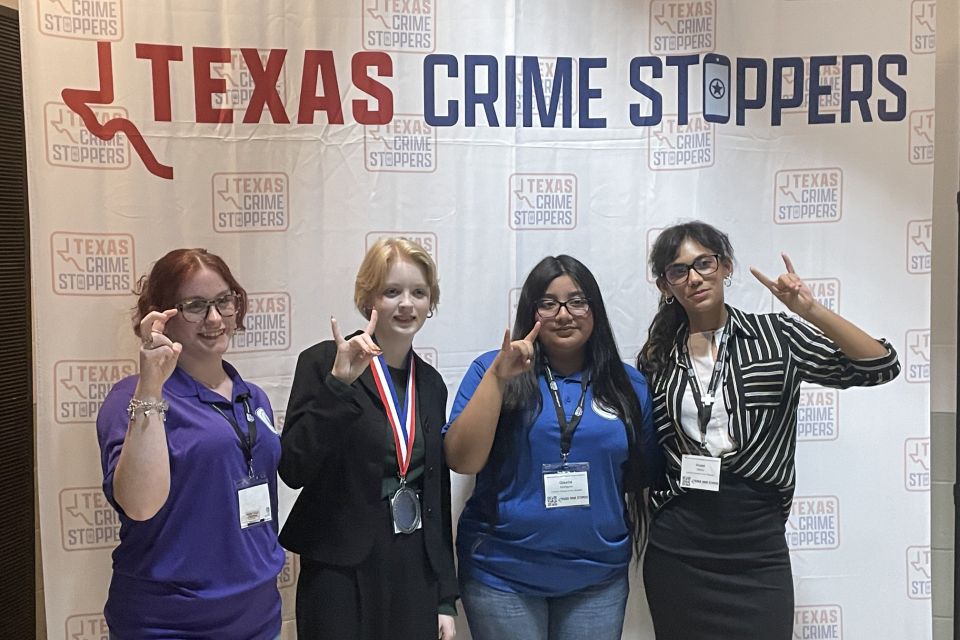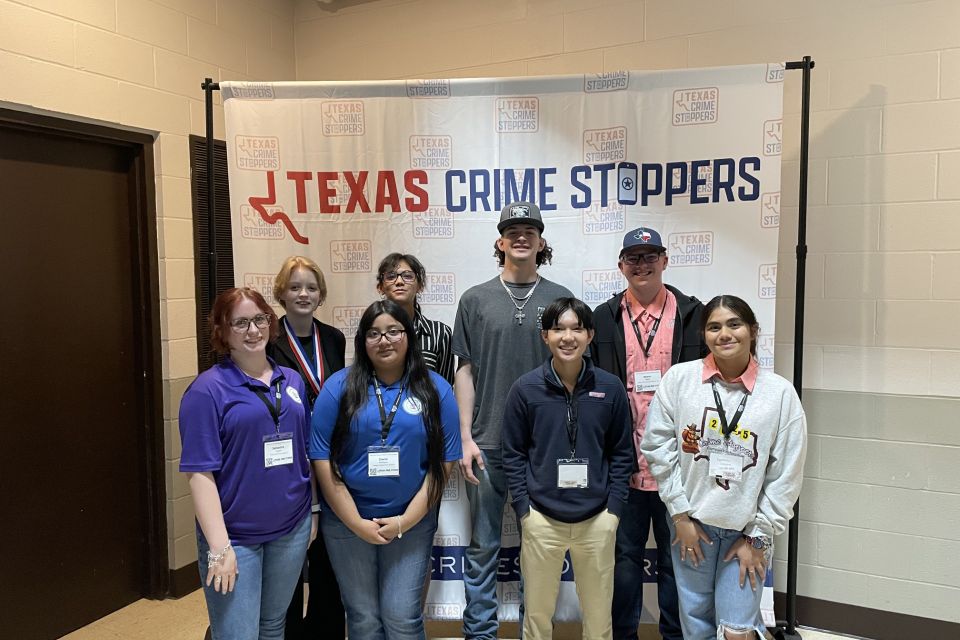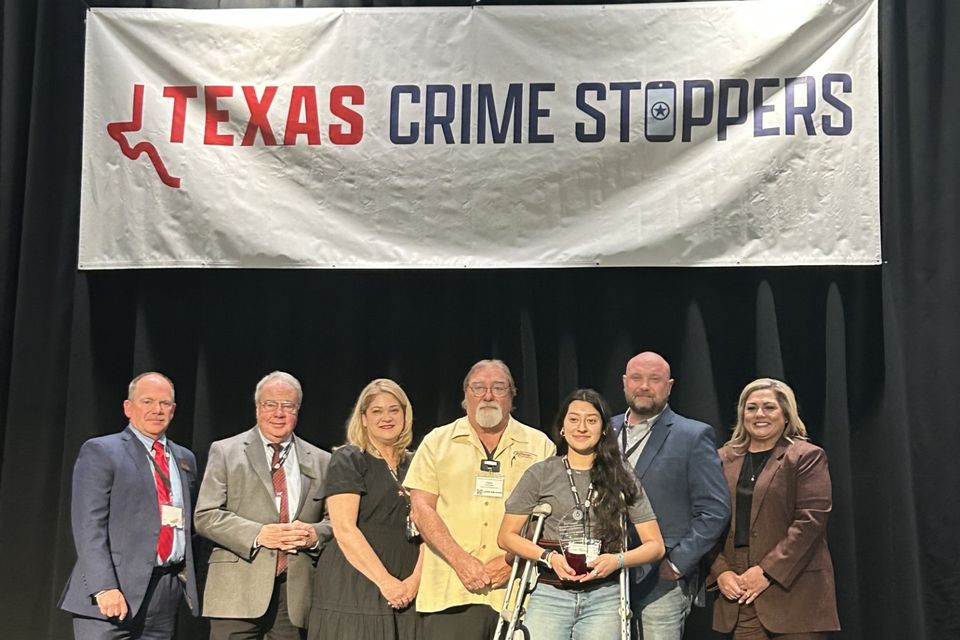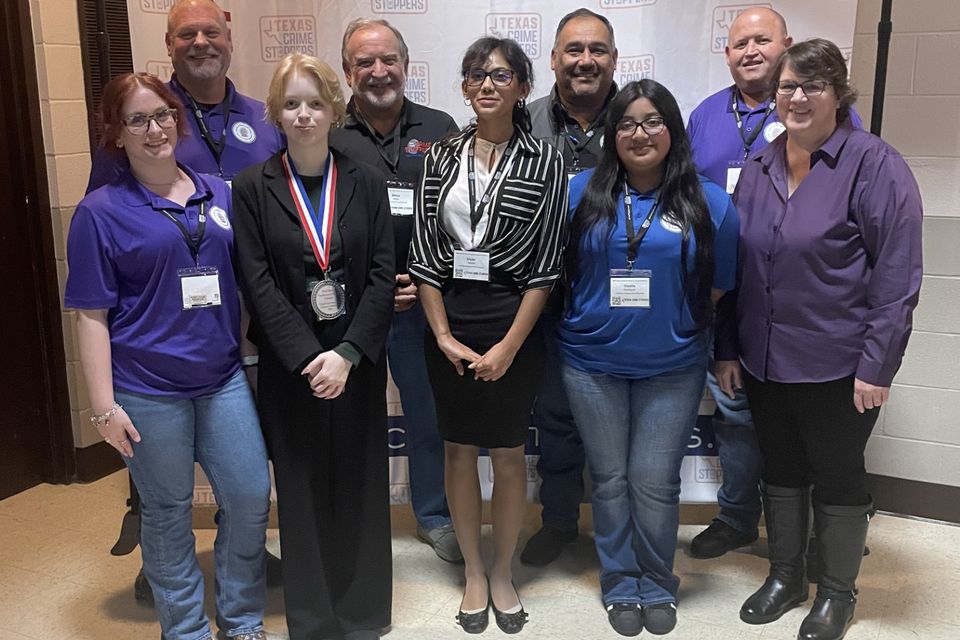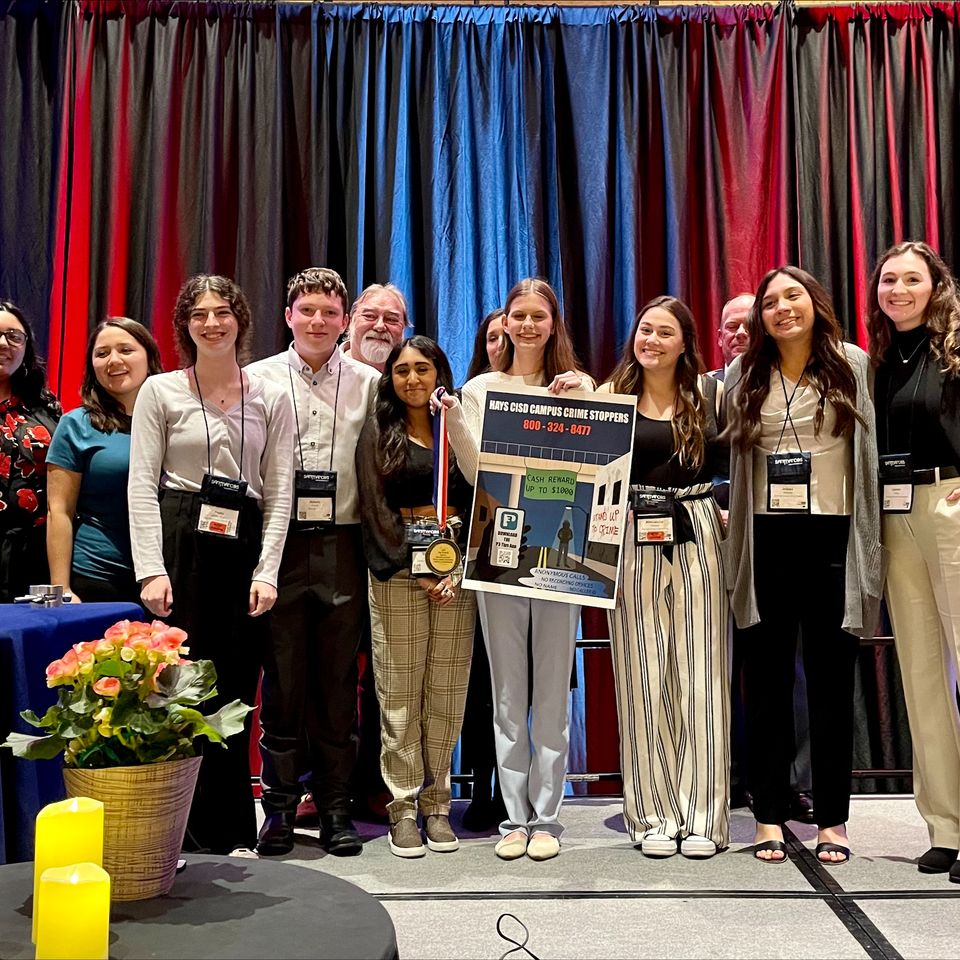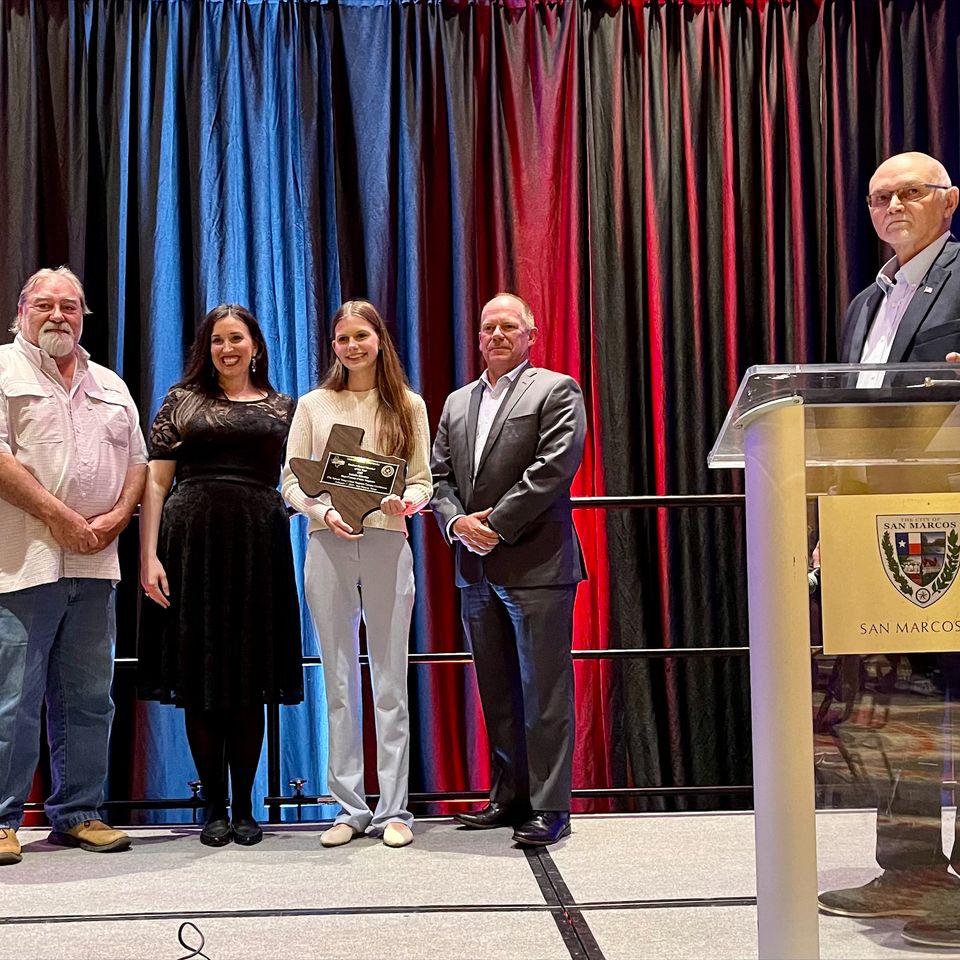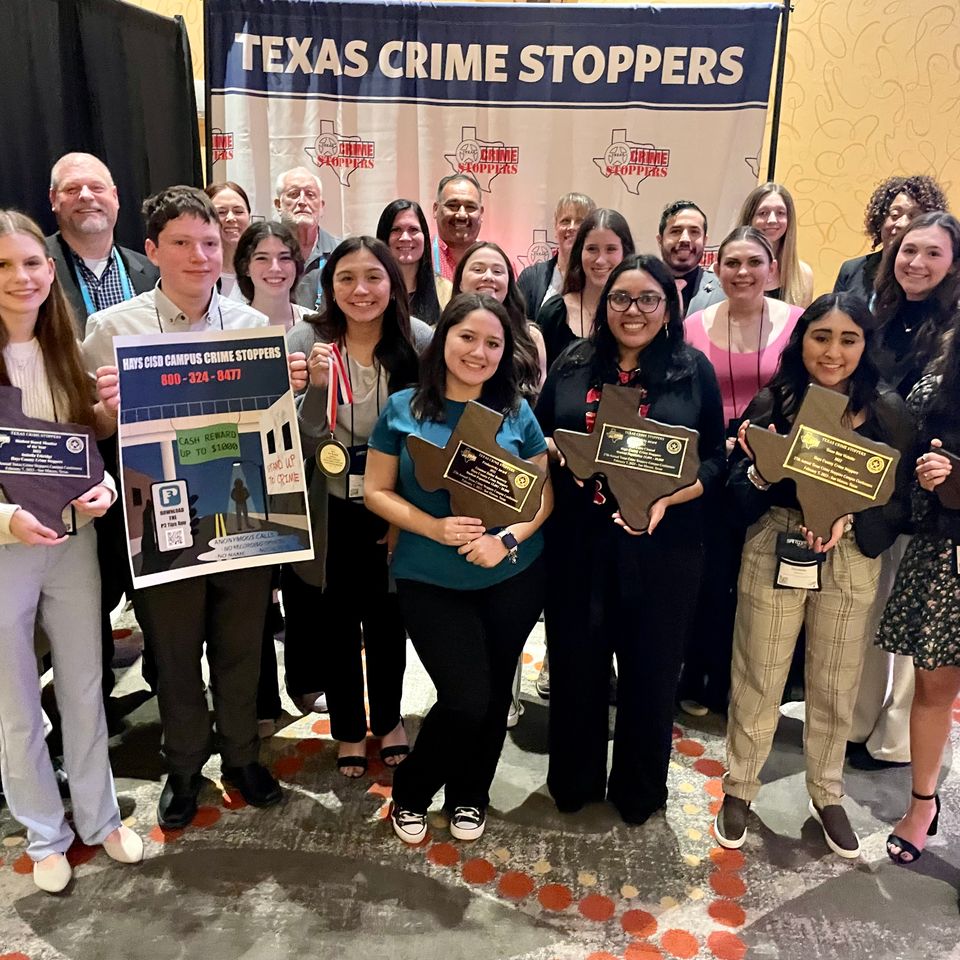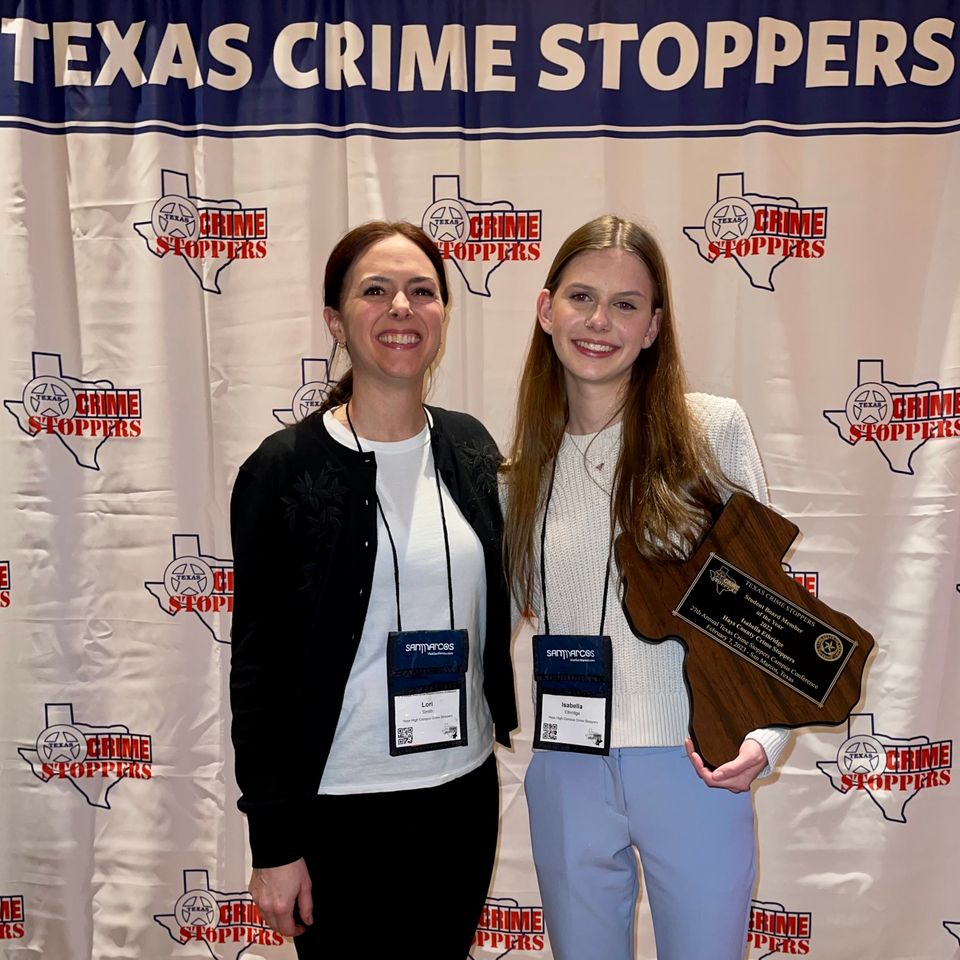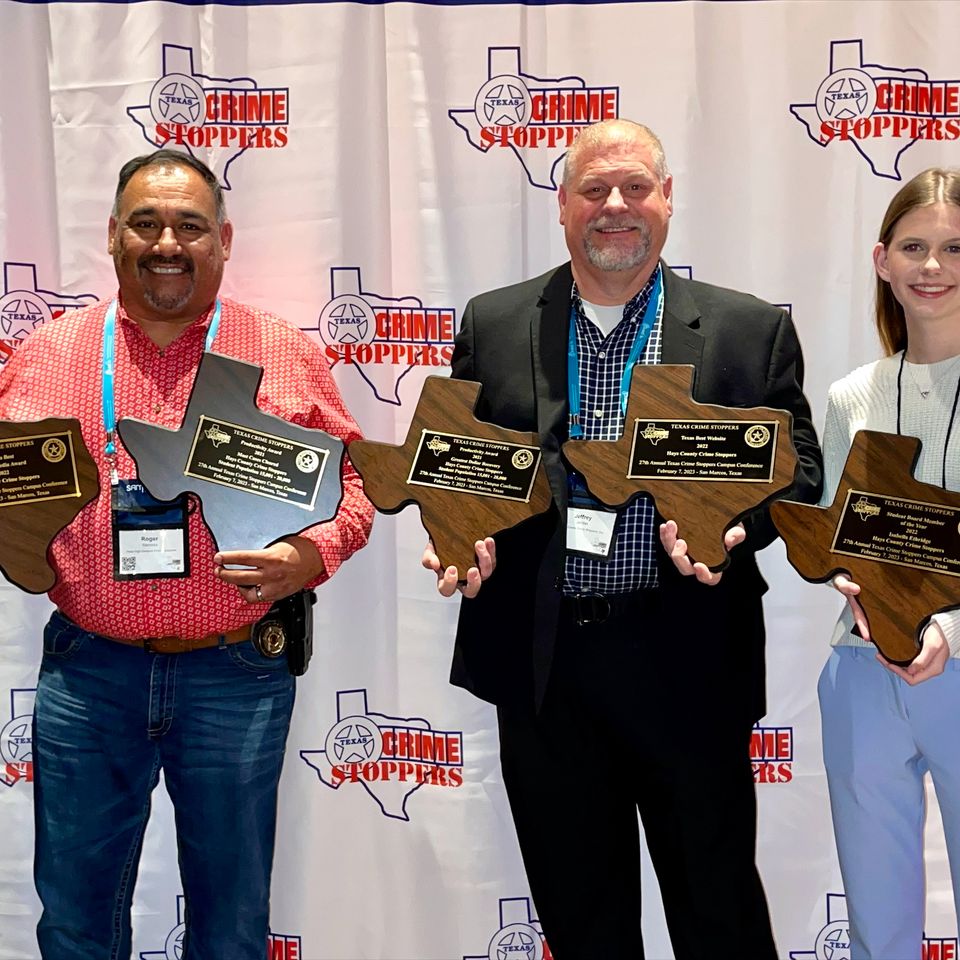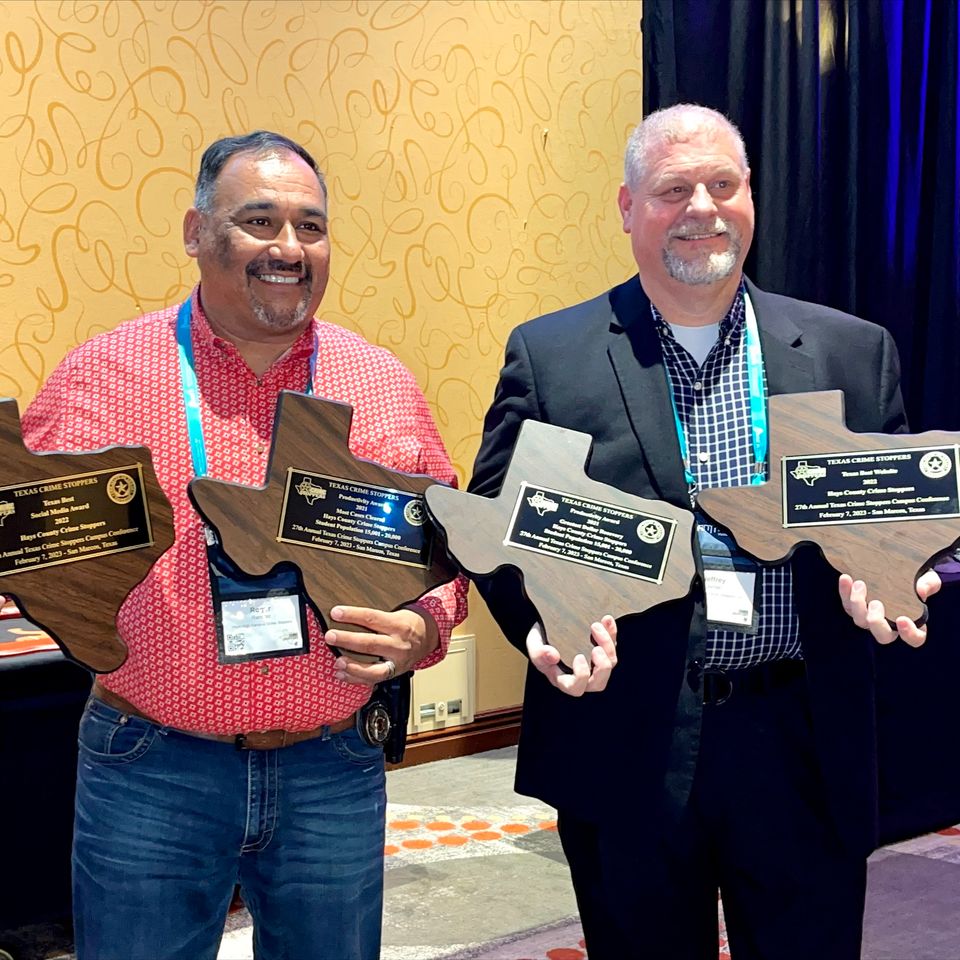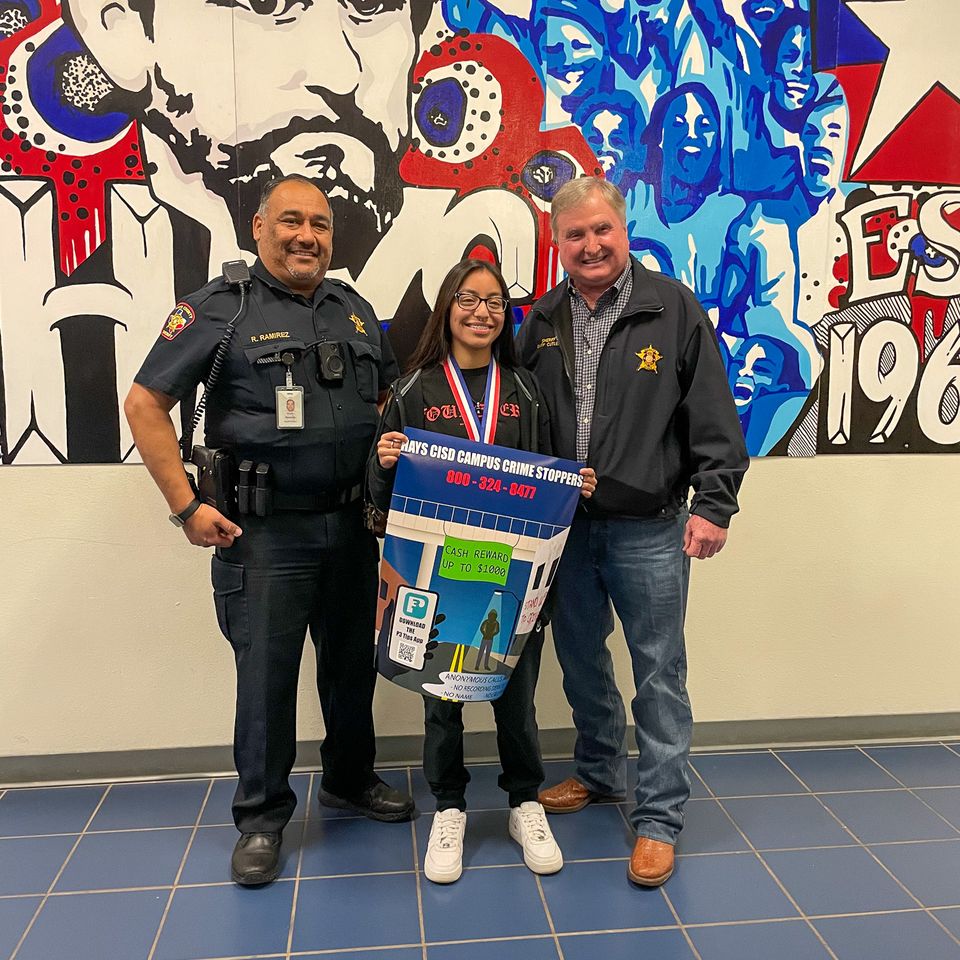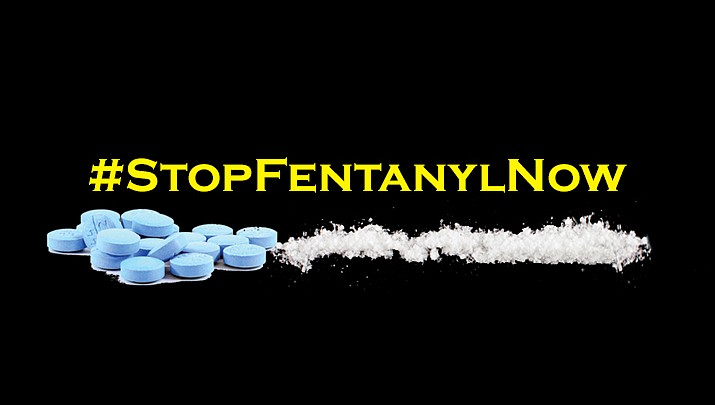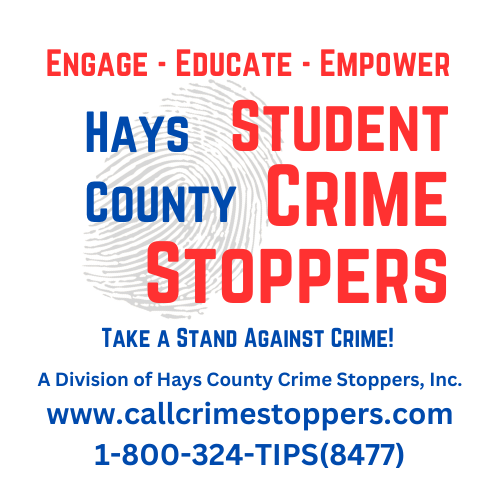
Hays County Student Crime Stoppers can help PREVENT potentially dangerous and illegal activity from taking place at school. Reports of bullying, cyberbullying, self-inflicted harm (suicide), vandalism, sexual misconduct, stolen property, drugs, and weapons can all be reported through the tip lines. Student Crime Stoppers has created a way to overcome fear and apathy by paying cash rewards and guaranteeing anonymity.
Providing students with an opportunity to help their school, community, and peers by discreetly reporting suspicious behavior or criminal activity allows students to proactively become part of the school safety solution and ensure that youth who are at risk receive the services they need.
By guaranteeing a caller's anonymity, Campus Crime Stoppers allows the caller to give information in a positive, anonymous atmosphere without the prospect of retribution. By offering cash rewards for information leading to arrests, the program encourages otherwise reluctant callers to provide information.
Calls are received at the Hays County Crime Stoppers tips line (1-800-324-8477). This phone line does not provide caller ID, and conversations are not recorded. The Crime Stoppers Law Enforcement Coordinator/SRO, receiving the information, completes the tip information form, makes initial inquiries, and then passes the information to the appropriate campus/officer.
Providing students with an opportunity to help their school, community, and peers by discreetly reporting suspicious behavior or criminal activity allows students to proactively become part of the school safety solution and ensure that youth who are at risk receive the services they need.
By guaranteeing a caller's anonymity, Campus Crime Stoppers allows the caller to give information in a positive, anonymous atmosphere without the prospect of retribution. By offering cash rewards for information leading to arrests, the program encourages otherwise reluctant callers to provide information.
Calls are received at the Hays County Crime Stoppers tips line (1-800-324-8477). This phone line does not provide caller ID, and conversations are not recorded. The Crime Stoppers Law Enforcement Coordinator/SRO, receiving the information, completes the tip information form, makes initial inquiries, and then passes the information to the appropriate campus/officer.
